|
5/21/2024 0 Comments Texas. Redux.
I wrote about my home* state several weeks ago. It was a wide-angle, pulled-back view, and I thought I'd unloaded what was in my heart and my head. But here I go again...
No, really, here I go. It's a quick trip this time, not my usual two-day drive down, weeklong stay, and two-day drive back. I'm going for a reading and signing at a bookstore in Keller, the once-sleepy town just north of where I grew up. Like other parts of the North Texas I once knew, it doesn't really match up with my memories anymore. It's bigger, more congested, more diverse, more interesting.
The book I'm taking with me, Northward Dreams, is the most personal piece of fiction I've ever written. The best thing I've ever written, too, not that anyone should trust me to judge such a thing. I'm proud of it. I'm proud of how I willed it into existence. And I really, really want to share it with the people who underpin it, in ways subtle and overt. They're in the book, all of them, whether they would recognize themselves or not. They're in it because they're in me, in the memories I carry around.
To that end, I sent out about 100 postcards earlier this year, addressed to people from across the years I spent in Texas: classmates, old neighbors, former bosses, teachers, colleagues, friends, former lovers. I asked them to come out and see me and to meet this book, to renew acquaintances or to prolong friendships that never ran dry. I'm hoping to see a constellation of faces I recognize come Saturday, but I've also put this event squarely in a holiday weekend, so who knows? I haven't always done a wonderful job of staying in touch as I've wandered the country, looking for the place I'd call home. I found it, years ago. But I've also come to realize that the place I'm from—as much as I'm from anywhere—is also home and always will be.
When I say Northward Dreams is my most personal book, I'm thinking, among other things, about this snippet from one of the four timelines the novel covers. Here, in 1972, Electra and her little boy have arrived at their new home in Texas:
After they’ve gone downstairs, after Electra has made her assessment of the pantry, after she’s pictured the days stretched out before them, after Nathan, red-faced and watery-eyed, has come down and asked for a glass of water, after Charley has fetched the rest of their things and stacked them by the door for sorting out later, after they’ve come back up the stairs, quieter, the three of them lie askew on the king bed. Charley is on his side, head propped up by an angular arm. Electra lies far opposite of him, attentive to her son, and Nathan sleeps in between, curled like a kitten’s paw and under a loose blanket. Electra reaches across the distance, and Charley takes her hand. “Probably not what you expected.” “It’s everything I expected,” he whispers. “You?” “It’s what I want,” she says. “Me, too.” “He’s really a good boy,” she says. “I know.” “It’s a lot to deal with.” “It is.” Charley sits himself up, careful not to jostle the boy. “Kids are resilient, though. I ever tell you about when we moved from Vernon to Wichita Falls?” “No. I’d remember.” “You went through both towns,” he says. “I know.” “I wish I could have been there.” “I know,” she says. “Fifty-some miles, might as well have been moving from earth to the moon. I was nine. Everything I knew, every friend I had, they were all in Vernon, but my dad, he was a history teacher, and the high school in Wichita Falls, they offered him $15 more a week, so we moved. I didn’t have any say.” “Had to be hard at that age.” She’s thinking now of Nathan’s best friends, the Miles boy two doors down and the Fletcher kid, the one she doesn’t much like but whom Nathan adores, and how she plucked him up and took him away without his getting to say goodbye. She hurts for him in a way that she hasn’t allowed herself to think about until now. “Hard at any age,” Charley says. “But the thing is, in the end, I made new friends. Wichita Falls became home, every bit as much as Vernon had been. I adjusted. He’ll adjust, too.” “Tomorrow,” she says, more thoughts she’s held at bay rushing toward her now. Enrolling Nathan in school. Finding a job. Learning where the supermarket is. “It’ll all get done,” he says, as if inside her head. It’s a talent he has. She leans across and kisses him for the first time. Where all of that comes from is both imagination and memory, little snippets that I heard, others I conjured, all of it front and center in my brain, ready to be accessed when I got hold of a story that needed it. This story. This place. Another time of life, forever salient because the decisions that were made had such gravity to them that their effects radiated out to lives yet to be launched. It's powerful stuff, fiction. Often more powerful than the real life that informs it.
0 Comments
(Note: The original version of this post went up several months ago, in anticipation of the release of my new novel. That release never happened, at least not with the original publisher and not in the original form. But I feel too strongly about this piece to just let it go, so here it is, with some revisions to reflect the novel's current reality.) 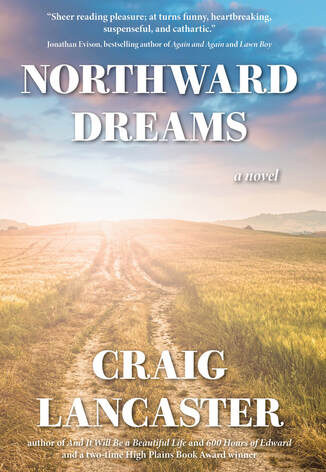 I. On The Feeling My tenth novel, Northward Dreams, is just days away from its release date. I’m no more impervious to big, round numbers than anyone else is, and the imminent publication of a tenth novel—particularly when I once had serious, serious doubts that I’d ever write, much less publish, even one—is a good occasion for a bit of reflection. I’ve learned a lot about how to do this, enough that sometimes I’m even prepared to believe I’ve gotten good at it. I’ve learned a lot about humility, which forecloses any chance that I’ll linger long on “gee, I’ve gotten good at this.” (These latter-day lessons in being humbled have been particularly instructive. See the section titled On the Things That Aren't Love for more on that.) I’ve learned a lot about what’s fleeting and what’s durable. I’ve learned that it’s all about love. What that what the last bit looks like, for me, hinges on memory and imagination, the crucial elements of fiction, in my estimation, but also fairly punchless without love. It’s loving the work. Loving the characters who get conjured in the work. Loving each new project with the whole of your heart, even if—and especially if—you must love it enough to let it go. There has been a lot of this, more than I ever imagined there could be. When I get down to diagnosing why an idea didn’t take off the way I hoped it would, I almost always land on a memory to which I’ve insufficiently connected, which bogs down the imagination that is supposed to turn it into fiction, which subsequently demands the love that makes me say “this is not for me.” (If I were as good at that in my beyond-the-page life as I am in my writing life, I wouldn’t bruise so easily. But I digress.) Conversely, the idea that soars, that becomes something I see through to completion, is almost always built on the back of a memory, slathered with imagination, that becomes something else again. It’s almost magical, that feeling, even as it remains hard, word-rock-busting work to bring it forth. I love (that word again) that feeling. I chase it. Again and again and again. II. On Memory and Love A couple of years back, in an interview with Montana Quarterly (where I’ve been on the masthead since 2013), the great Larry Watson said something so profound that my greatest wish was that I’d said it first. Failing that, I cite this quote endlessly, with all due credit to Mr. Watson: I write from memory, not observation. Yet my memories are formed from observations, and then memory and imagination distort those observations into something useful for fiction and something that’s also truthful in its own way. That’s the ballgame, right there. Unsaid, but screamingly evident to anyone who has read Watson’s work, is the part where love comes in. That manifests in doing the work, in riding the work out, in achieving empathy with your characters, in knowing when to make the gradual turn from I’m writing this to engage my own need for the work to I’m writing this for someone to read someday, and thus I must be attentive to what it needs to be. Love is showing up faithfully. Love is holding at bay the world that will threaten your enthusiasm, your want-to, your ability to separate those things over which you have control and those that are mysterious variables. Love is having a standard for the work. Love is absolving yourself when, say, a pandemic swallows up your work like it never existed in the first place. It did. Your love made it manifest. Love is also forgiving yourself when you could have done better and somehow didn’t. Love is believing that you’ll do right by it the next time. Love is faith, and you’re gonna need a lot of it. Arthur Miller—I borrow only from the best—knew something about the staying power of the deeply imprinted memory. Perhaps nothing is as creatively propulsive as the blown chance, the missed boat, the shameful moment, the deep regret, the thing you ache to understand, the love you couldn’t hold. Here he is: Maybe all one can do is hope to end up with the right regrets. If you’ve had a bit of therapy—and only about eight percent of us have, which means ninety-two percent of us are in deficit—you’ve probably been told that regret is a feeling wasted on the unsustainable belief that you should have been perfect. Insofar as it applies to our lives and how we face up to them, I’m inclined to concede the point. But for the author who mines memory for stories, regret—particularly the right kind, which Miller doesn’t identify and thus is open to personal definition—is creative fuel. As I look back on ten novels, I see work and characters suffused with what I could give them through my grappling with memory and regret. Neurodivergent Edward Stanton (600 Hours of Edward, Edward Adrift, Edward Unspooled) and his fights with an illogical world. Mitch Quillen and his intractable father (The Summer Son). Hugo Hunter and his clay feet as a fighter and a father and a friend (The Fallow Season of Hugo Hunter). The Kelvig clan and their town and the pulling apart of what binds them (This Is What I Want). Sad-sack Carson McCullough and the demise of the newspaper business (Julep Street). Jo-Jo and Linus and the vagaries of attraction (You, Me & Mr. Blue Sky). Max Wendt and the status quo he doesn’t see crumbling (And It Will Be a Beautiful Life). And now, Northward Dreams, perhaps the most personal work of them all, one that required me to find the memory—and, always, the love—and enough imagination to make it something more than a transcript. So much more. So surprising in the end. So familiar that it could have kissed me. I’m in love. It keeps happening. III. On Imagination and Love How does this memory-fortified-with-imagination-backed-by-love thing work, in practical terms?I have an object lesson for that, drawn from Northward Dreams and its ingredients. The memory: If I’m prompted to give a short-hand accounting of who I am and how I got here, I say that I grew up in Texas and found my way to Montana as quickly as I could. The truth is a bit more nuanced. I wasn’t that quick. I got here when I was thirty-six years old, time enough for a dozen places in the interim that I tried, to varying degrees of success to make home. My first home, in fact, after I was born in Washington state and adopted by my parents, was in Mills, Wyoming, a little bedroom community north of Casper. For the first three years of my life, I lived in tiny clapboard house on an unpaved street, which sat across the street from one of the town’s water towers. After my mother left my father and moved us to Texas, I was largely absent from Mills save for occasional summer visits to see my dad. But the image of that water tower embedded in my psyche. Whenever I would see one like it, particularly in my suburban Texas town, I would feel the pangs of separation from my father. The imagination, in excerpt form: Ronnie goes down to the floor with his boy for a close-up view of the gas station in miniature. He watches as two round-headed figurines in a car, into which they fit like pegs, ride the elevator up to the top floor and the door opens and the car rolls out and careers down the ramp to the carpet beneath them. “Ain’t that something?” he says, and the boy squirms happily. “I got it for Christmas last year,” Nathan says. “I remember,” Ronnie says, a harmless lie, he thinks. “Hey, I saw that kid Richard, your friend, the other day. He says hello.” “He’s nice,” Nathan says. “Yeah, he’s a good kid.” Nathan bounces up and grabs his father’s hand. Ronnie clambers to his feet. “Come here,” Nathan says, tugging him. “OK.” Nathan pulls him to the window that looks out upon the suburban expanse. “See that?” “Yeah,” Ronnie says. “Buildings.” “No, that.” Nathan points, insistent. “What?” “The blue thing.” Ronnie stares down. “What blue thing?” “No, there.” The boy redirects his indicator, trying to get his father to follow the line. “The water tower?” “Yes.” “Yeah, I see it,” Ronnie says. “That’s where you live.” “It is?” “Yes. I live here. You live over there.” “No, son.” “Yes.” “No.” Ronnie makes a quarter-turn, facing the wall. He points at the blankness of it. “It looks the same as our water tower, but I live a thousand miles that way. North. Where you used to live.” He turns back to the window and points again. “That over there, that’s east. Understand?” “No.” “Well, come downstairs, Sport, and I’ll try to explain it, OK?” The love: It starts with what I feel, and have felt, for my father, a love that’s been constant but ever changing, ever shifting depending on the circumstances we find ourselves in. The unquestioning adoration I had for him when I was a little boy got replaced by an exasperated pity the more I learned about him and the more I witnessed. That, in turn, got supplanted by the responsibility I take for him in his dotage, the insistence I have of seeing him off this mortal coil and keeping fear, terror, and pain as far from him as I can. As his infirmities grow and he lashes out, I find myself with more and more days when I love him and simultaneously hope I can find a way to like him again. It’s not for wimps, this love thing. The water tower the boy points at insistently was, and is, in a Mid-Cities suburb between Fort Worth and Dallas, a town called Hurst. I used to climb into the tallest tree of my neighborhood in an adjoining town and find it on the flat horizon and try to convince myself that it was Mills, Wyoming, and that my father might be there at the base of it. I didn’t know north from east in those days. I couldn’t have envisioned the magnitude of a thousand miles. I just knew blue, cylindrical water towers and that one was in proximity of a man I missed. I tucked it all away. Years later, it came pouring out of me, a strong current of memory washed in imagination. That’s love. IV. On the Things That Aren’t Love
Soon after my third novel, Edward Adrift, came out in 2013, I was making enough money in royalties to grant serious consideration to trying to make a go of it as a full-time novelist. I had the big-time New York agent, a slew of foreign translations, a full calendar, and novels-in-progress lined up on the runway. My then-publisher had feted the onset of our relationship with “we want to be in the Craig Lancaster business.” That’s something—indeed, I suspect it’s something that most any author not in the one percent craves—but it’s not love. It’s validation, it’s success, it’s the fruits of one’s efforts, it’s unadulterated luck, but it’s not love. Love is what you give yourself when the royalties dry up, the big-time New York agent moves on from you, the foreign translations are harder to attract, the calendar is empty, and the ideas are taking on rust. When your publisher doesn’t want to be in the “you business” anymore. When the publisher you subsequently love makes promises that don't pan out and you pull a book just a day before it's supposed to come out, knowing you'll end up hating yourself and maybe him if you don't. And you don't want to hate anybody. Find love through that. It's not easy. But it's worth every effort you can give it. These are all things that can shoot your horse right out from under you. I’m not suggesting that you—or anyone—should just buck up and get through it, as if it’s not there, in your path like a boulder you can’t circumnavigate. Lean on your supports. Get your ass into therapy if you need it (ninety-two percent of us do!). Divert yourself with a hobby or a road trip or whatever. Take some time off, if that’s what’s calling to you. Don’t stop pushing, if pushing is what’s demanded. And while you’re doing all of that, remember the love. The love of a memory, an idea, an approach. The love of the work. The love of the characters and the settings and the structure of what you’re trying to create. The love of revising it and honing it until it’s just what you want. The love of taking the finished thing—the first or the tenth or the hundredth—and offering it up with a hopeful, open heart. I made this. I fell in love. Again. 2/19/2024 2 Comments Like Planes on the RunwayI suppose this could be a Saturday Morning Craft Talk, except it's not Saturday morning* and it's not particularly crafty. So scratch that. No. No, it couldn't. It does, however, speak to an aspect of the writing life, one that varies wildly from writer to writer, if my conversations with colleagues and contemporaries are any guide. What does one do with the ideas when they're not actively being worked on? It's a good question, one with a slapdash answer for me. I'd love to be a capital-letter Artiste, with a leather-bound notebook that never leaves my side, with stacks of brimming journals, with a catalog of every thought I've ever had and a handwritten account of every beauty I've ever witnessed. Alas. I'm just a guy with a brain, such as it is. My ideas—what I've thought of doing, what I'd like to do, what I'm considering, what I've started and not finished, etc.—are all in there, in some stage of marination. It's no doubt a terribly inefficient system, but I'm not complaining. I wrote my first novel in 2008, a breakthrough that came after years of wanting to and not really knowing how. Since then, I've not lacked ideas; indeed, I often describe my notions as being backed up like planes on the runway. But an archivist, I am not. Nor an inventory specialist. Nor a tour guide. Whatever I will or might do is up here—*taps head with index finger*—and I'm the guy with the key. I'll take the key, and the ideas, with me when I go. And that will be that. I've written before about the linear way in which I work—start at the beginning, then write straight through until the end, if I can get there. (I've also written before about how that linearity is subject to the needs of revision, when I'll happily move things around, delete things altogether, or augment the bits that aren't quite cooked.) This, too, is a terribly inefficient system, in that my early days of writing fiction were marked by a sense of loss and bewilderment when a manuscript just didn't go. I'd stash whatever I'd managed to do on a hard drive somewhere, nurse my wounds, shake off the disappointment, then try again with another idea. Fortunately, a new one would be at the ready. Planes and runways and all that. Those half-baked attempts, tucked away in their little folders, were dead things I couldn't bring myself to bury, even though I knew I wouldn't resuscitate them. A few things got salvaged for other purposes--Somebody Has to Lose, at 14,000 words my longest short story, is one such reclamation. But mostly, they take up computer memory and lie dead and crumbling. This used to bother me a lot, just from the standpoint of industry: All that work for nothing. All those words expended and nothing tangible to hold. Boy, was I wrong. 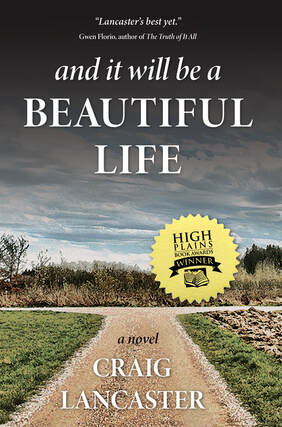 For one thing—and apologies for such a hoary cliche—there's a lesson in every failure, and not every failure is what it seems. This would have come as quite the surprise to the me of 15 years ago, who upon breaking through and at last writing a novel thought he had figured everything out. I didn't know anything. If possible, I know even less today than I knew then. Or I simply know different, better things. For instance... I've learned to wait on it. The manuscript that became And It Will Be a Beautiful Life came out slowly amid several stops and starts, and over the course of a few years. I started it in Montana, pecked away at it in Maine, and found my way through, at last, upon returning to heart earth. It wasn't entirely a function of geography, though I'm convinced that had much to do with it. I simply had the patience to wait for the memories and the imagination to steep properly. That's age. That's experience. That's trust. That's love. A while back, an artist friend introduced me to a well-known author with this: "Craig is a book-a-year guy." True once, but not so much anymore. As a less experienced novelist, I wouldn't have trusted myself to wait for the right idea to emerge in its own time. I wanted, needed, to write the next book, and quickly, if only to prove to myself that I still could. Today, I have no such worries. I know I can do it. I also know the idea I should be working on will let me know when it's ready. Giving it time and space to bloom is granting myself grace in the bargain. I'm increasing the likelihood that I'll find my way through because I'm letting the thing come to me instead of stampeding it. So, about the planes and the runway...
My next novel is just a couple of weeks from being released, the idea having germinated and taken root and blossomed nicely. The one likely to be next is written and ready for the publishing gamut, and that took me the better part of a decade, start to finish. After that? Planes on the runway, baby. I have three manuscripts in various stages of development. I suspect, but don't know, that all will find their way to the finish line. (Big disclaimer: If I have enough time. I've reached a time of life when I worry less about the ideas and more about whether I'll be around to snag all of them.) I'm enchanted with all three stories, but it's not time to finish any of them yet. Soon. Eventually. I trust the process, if not the clock. At long last, I trust the process. *--It's Monday afternoon. Thanks for the long weekend, presidents. 2/3/2024 0 Comments Texas.I moved to Texas when I was three years old. No one consulted me, and I wasn't happy about it, but Texas and I, we found our way. In time, I came to view that move as the most consequential event in my life. When I left Texas for the first time, I was fifteen years old, about to be a sophomore in high school, and I made a snap decision that I'd like to live with my father in rural New Mexico. He'd just been through a divorce, a particularly bad one, and I thought maybe he needed me. It didn't take. A lot of lessons in that, some that got under my skin immediately and others that steeped for many years before I understood. Among the latter group, probably one of the most important lessons: You can't fix for someone else what he must mend on his own. By the end of December, I was back home in North Texas, where I belonged, even if I still felt the fit was a little tight. When I left Texas for the second time, I was twenty-one, and I pointed my nose toward just about the farthest-away dot on my map. I went to Kenai, Alaska, for a sports editor's job. That didn't take, either--though some vital friendships did—and I came scurrying back not six months later. When I left Texas for the third time, I was twenty-three, and it was a job I left behind, a fairly miserable nine-month stint in Texarkana. Texas and I, we were living together uneasily amid irreconcilable differences. I worked at night on the Texas side, then hustled back across the line to Arkansas to set down my head. When I had a chance to leave Texas, off to Kentucky I went. When I left Texas for the fourth—and, as yet, final—time, I was thirty years old and adrift, in the midst of one of those Worst Years Ever that seem to surface every decade. I'd bounced from San Jose to San Antonio, and I'd found Texas to be what it always had been: inscrutable, beautiful, alluring, interesting, and not for me. Back to San Jose I went, but first with a three-month misdirection in Olympia, Washington, and it's like I said: bad year. This is all to say that I've left Texas a lot. But Texas has never left me. The math doesn't lie. Texas had me for most of eighteen years, then nine months, then eight months. Nineteen and a half years, let's call it. Add in various visits over the years—can you really leave a place that harbors your parents and your siblings and your formative memories and some of the best friends you've ever had?—and the total still falls short of twenty years, but let's round it up. Fine. Twenty years of Texas. I'm fifty-three, and on the cusp of the next number up. The scales tip heavily toward everywhere else. Here before too long, Montana will sink its years deeper into me than Texas ever did. It already has more of my heart, more influence on my creativity, a bigger share of my identity. Still, Texas abides. Still, Texas claims me. Still, I claim Texas. Those holds are coming up through my work first, which means they're coming up in my memories. My latest work is drenched in Texas, even if most of it unfolds farther north. There was no way to imagine Nathan Ray, the central character of the ensemble, without first cozying up to the Texas I knew as a boy, then conjuring a backstory where the Texas he knows is a backdrop of pain and disillusionment and gifts he cannot yet see. It's in the next book—the one with a title in flux, the one that may emerge in 2025, or maybe '26—that Texas takes a star turn, a place both abandoned and returned to. Here's a snippet: Texas was gone, falling behind us a mile a minute, and I was relieved and scared all at the same time. You leave Texas little by little and then all at once, yes, but Texas is also a magnet—a big, southerly magnet pulling at everyone else in the country with myths and manufactured romance and jobs and cheap living and low taxes. You can get away, but can you ever really leave? My answer, beyond the bounds of fiction? It's complicated. You can leave, sure. But you come back. The only thing is, I've never made a return stick. But it's early yet. I'm still upright and breathing. In the foreseeable term, of course, I'm not going anywhere. I live in Montana, I love living in Montana, and the father with whom I couldn't live in 1985 really does need me now. He lives in Montana. As long as he draws breath, and probably longer, here I'll be.
But I can't quit Texas, and unlike the answer I'd have given you twenty years ago, I don't want to. It's in my head and my heart and my memories, and the last of those is the most essential ingredient in doing this thing I do. That, I believe, is why Texas seems so insistent these days, like a song that I can't get out of my ears. It's having its say in my work, and I'm making room for it there. Perhaps, in some future I cannot yet see, I'll make other accommodations for it, too. Occasionally, either not knowing my history or not caring, a friend or acquaintance will say something cutting about the place that shaped my boyhood, and thus my life. And I'll cringe, because the cuts are easy enough to administer when Texas serves up such ridiculous stereotypes, such a bloody history, such casually cruel politics. On a day when I can find patience and indulgence for a friend's carelessness, I will say, OK, yes, but Texas is also a vast and beautiful place, full of beautiful people who contain multitudes. Texas isn't made for anyone's tidy little box. It's destined to spill out from whatever attempts to contain it. In short, it cannot be seen in simplicities when its complexities abound. 5/15/2023 1 Comment Dan GenselFriendships are funny things. Sometimes, they exist in a fixed place and time, sturdy and strong for a particular period in our lives. A counselor of mine, Jane Estelle, once told me that human relationships are often like cab rides. They have beginnings and ends. That was wise. It's true. Sometimes, though, friendships are a ride that never ends. You don't reach a station and get out of the car. You keep going, through years and locales and jobs and other relationships and seasons of your life. And sometimes they are both. They are fixed in time and endless. Those are the best friendships. Dan Gensel was that kind of friend to me. Dan Gensel is gone. I moved to Kenai, Alaska, in November of 1991. I was 21 years old, and I didn't know anybody there. I'd come from my hometown, North Richland Hills, Texas, and had taken a job as the sports editor at the Peninsula Clarion newspaper. Why? Why not? I was 21 and unencumbered. Alaska was far away. I wanted to go and could go, and that's a combination I wasn't always going to be able to put together. Now, for example. Couldn't do it. Won't do it. Want-to isn't even a factor. Years ago, I wrote a piece for the radio program Reflections West about that time in my life and the factors compelling me to move north. You can listen to it here. My first week in Alaska, I covered a Kenai Central High School-Soldotna High School girls basketball game. It featured two of the best players in the state, two of the best players in the history of the state: Stacia Rustad of Kenai and Molly Tuter of Soldotna. On one sideline was Coach Craig Jung of Kenai, a man I'd come to greatly admire in my brief time there. On the other sideline was Coach Dan Gensel. He and Craig were great friends and ardent competitors. Stacia and Kenai were coming off a state championship; Molly and Soldotna would win one a year later. I didn't know any of that. I was just a new-in-town sportswriter, trying to figure things out. The photo above, of Dan and Melissa Smith, one of the kids I covered that season, isn't from the game in question, but it's a good approximation of the Dan Gensel of my memories. After the game, which Kenai won, he sat in the bleachers with me and just talked. Where you from? How'd you come to this job? What's your background? Getting-to-know-you stuff. I liked him, right from the start. Later, I met his wife, Kathy, and his daughter, Andrea, and liked them, too. In time, it became love. But it was like, from the get-go. Those were lonely days for me, 4,000 miles from home, alone, barely scraping by, driving an on-the-verge Ford Escort and living in a one-room apartment. Dan and Kathy took me out for my 22nd birthday, just a few months later. Dan gave me seats on school buses to far-flung tournaments and let me sleep on his hotel room floor sometimes when that was the difference between my being able to cover something and not. He also gave me a basketball education, one I tucked away, then unveiled when I wrote a short story about a wunderkind basketball player and a coach and a town that loses all sense of proportion. Here's an excerpt from Somebody Has to Lose: “Mendy, it’s like this.” He squared up to the basket, squeezing the ball between his hands and planting a pivot foot. “First option: jump shot.” Into the air he went, releasing the ball at the peak of his jump and watching it backspin softly into the net. Cash, her face red, gathered the ball and rifled it back to him. “Second option: drive.” Paul took two dribbles into the lane and then fell back to his spot on the periphery. “Third option: make the next pass.” He slung the ball to Victoria Ford, directly to his left on the wing. “You know better than to just throw the ball over without even looking.” Paul turned to the players clumped on the sideline. “Shoot, drive, pass. When you get the ball in this offense, that’s the sequence. I don’t want anybody not following it, you got that?” Yes, sir,” the girls answered glumly. "You get the ball. If the defender has collapsed into the middle, you shoot the open shot. If they’re crowding you, drive around them. If you’re covered, make the next pass. This is not difficult. Run it again.” That right there, in just a few paragraphs, is the Dan Gensel philosophy of basketball. It inverts the conventional wisdom of the time—pass first, shoot later—into a kinetic, high-scoring, fun way of playing. And, man, was he ever successful. Won a lot of games. Won a state championship. Made the hall of fame. But that's not what I remember most about him. I remember that he and Kathy and Andrea became family, particularly after I came back to Alaska in 1995 for a three-plus-year stint at the Anchorage Daily News. I remember that I was a regular guest on their downstairs couch, so much so that it developed an imprint of me. I remember that they tolerated movie nights when I'd make them watch Ed Wood and Pulp Fiction, fare that was decidedly not up their alley. I remember later visits in California and Las Vegas. I remember Andrea's wedding in the early aughts down in San Diego, when Dan asked me to give the speech before the father's speech. Predictably, I went for funny and warm, extolling my love for a family and a young woman I'd watched grow up. Dan, after me, had everybody in tears with his love for his little girl. Later, in a quiet moment between us, Dan said, "I knew you'd take them one way and I'd bring them back the other." Teamwork, baby. I remember Dan's closing out the wedding reception by climbing atop a table and lip-synching "Don't Stop Believing." I hate that song, but I love that man. I remember, a few years later, Dan's serving as the best man at my first wedding. The marriage didn't last. The friendship endured. I remember all the times we talked about getting together over the past decade or so. I remember that we didn't make it happen. That'll be the only thing I regret. It's like I said: It's a friendship fixed in time and eternal. I'll carry it now, for however long I'm around. There's been a lot of that these past few years. Too much. 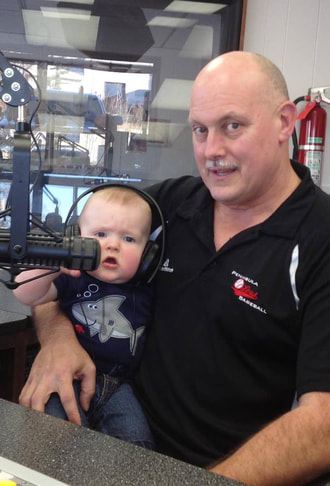 It's been a long while since Dan was a basketball coach. In his final years, he was a sports radio guy--a damned good one—and a grandpa, a role he made his own in an inimitable way. He and Kathy became community stalwarts in Soldotna. Andrea and her husband, Lee, are right there. It's been a good life. It will continue to be a good life, I'm sure, but those who love Dan will have to live with a big hole in it. It's a testament to the community Dan helped me build thirty-odd years ago that one of his former players, someone with whom I've been close since I was a 21-year-old green sportswriter riding a school bus, contacted me with the news. I spent just six months in that job at the Peninsula Clarion. My Facebook page is full of people I knew then and still know now, and I'm a lucky boy, indeed. Dan was 34 when I met him and 66 when he died, and that's both a long time and not nearly enough of it. I'll miss him. 1/15/2023 0 Comments Memory + Imagination = Fiction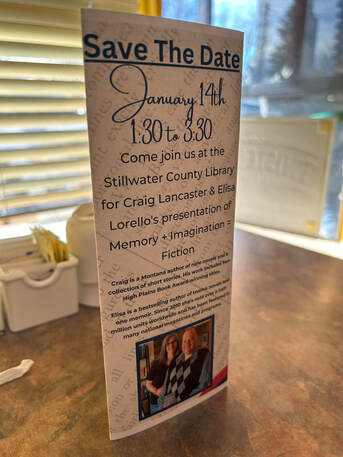 Elisa and I took our new presentation, title above, out for its first spin Saturday at the Stillwater County Library in Columbus, Montana. (Cool side note: The centerpiece pictured here was on our table at Grand Fortune, a Chinese restaurant in Columbus that we hit before the event. I can definitely say that's a career first for me. For Elisa, too.) To say that we were thrilled with the response to our program would be, perhaps, to diminish the meaning of "thrilled." We had a group of about 20 people who dug in with us, asked excellent questions and provided terrific insights, and even gamely took on a writing exercise at the end. The idea was to take The Word—the go-to warmup exercise I've written about from time to time—and apply the principles of memory harvesting to create the short fictional work that resulted. So we had the folks give us a passel of words, then we ran a random-number generator to choose one that would apply to everyone's work. That word: hayloft. Elisa and I wrote along with everyone else. I had the advantage of my laptop, so I was able to write about 630 words in the 20 minutes of the exercise. As I told everybody afterward, if the current manuscript took on words that quickly, I'd be done with it back in November. Of 2020. What follows is my effort ... HayloftMom told me I would be sorry if I didn’t go, if I didn’t see where my grandfather, her father, had grown up. I was dubious, to say the least. I liked our hotel, I liked the pool—the pool was about the only thing that made southwestern Minnesota in summer bearable to me—and I wanted to stay. She insisted that I go. I was nine. Guess who won that debate? The whole way over, our 1978 Chevy Citation baking on the blacktop, Mom told me that she’d only been here once, long, long ago, when she was a little girl, after grandpa had come back from the war in Italy. “It was like a magical place, Jeff,” she said, and I sat there thinking she should see some better magic. “Tractors. Gardens. Corn you can eat off the stalk. A hayloft, Jeff, with a tire swing. You can launch yourself clear into the rafters and come down in a soft landing.” I harumphed. Something good was on TV, and I was missing it. We made a little turn off the two-laner and went down this rutted two-track, between two fields of corn headed for silage. I wasn’t going to be eating anything off these stalks, I figured, but seeing as how I was a civilized boy, I didn’t need anything that didn’t come in a can anyway. But maybe I could slop the hogs and shovel out the chicken coop. Boy, howdy. At the end of the lane stood my grandfather, all unfolded six-foot-six of him, encased like a sausage in denim overalls and a gingham workshirt. I’d never seen him looking like that before; the guy was a navigator for Alaska Airlines, not a goat roper, but I guess it was the same nostalgia trip for him that it was for Mom, making his way to the place where he’d grown up. Beside him, another couple—that’d be great Uncle Leo and great Aunt Darlaine, I supposed, the proprietors now of the farm. I’d never met them, I didn’t think. Mom started crying once they came into view, and I shrank down in the seat, both because they were all waving stupidly at us and because Mom cried a lot that summer, and it had become clear I couldn’t do much other than let her hug my neck. We got out. Grandpa came at us, and Mom collapsed into him, crying at a stronger pitch. He folded her in like the bear of a man he was, and he reached out with a mitt and pulled me in, too. “We’ve been waiting,” he said. “I know,” Mom said, her voice muffled by his overalls. “I don’t think I remembered how far out it is.” Leo and Darlaine, having waited their turn, moved in, too. More hugs. More crying. Pinched cheeks on me, Darlaine’s doing, as she called me a beautiful boy. Torture. Sheer torture. “Jeff,” Grandpa said, holding me at an arm’s length. “What do you have to say for yourself?” “Nothing,” I said. “Well, you’ll need to do better than that.” “Mom says you’ve got corn here I can eat,” I said. “That we do.” “Where?” I asked. “Soon,” he said. “I’ll show you. What do you think of the place?” I cast a look around, for his benefit. All of them—Mom, Grandpa, Leo, Darlaine—had a look like something major would be hinging on my answer. “I’ve seen better,” I said. And then, deflation, right down the line. Grandpa gripped me by the neck, a gesture that looked loving enough but had a little pinch to it. I’d been mouthy. I knew I’d best not be mouthy again. “Well,” he said, “maybe that’s so. But someday you’ll lose a few things, and you’ll know better.” Because part of the exercise involves sharing both the memory and how the imagination was applied to it, here's closing the circle:
The memory: Hayloft was a word that led just about everybody to a farm, in one way or another. A word like that spawns more similarities, even in a large group, than a word like, say, forgettable would. I thought of the farm my grandfather grew up on, which I saw only once, when I was a little boy. I grabbed the name of his younger brother, Leo, and Leo's wife, Darlaine, because it was easier than making up new names. But Leo and Darlaine weren't the proprietors of the farm back then. (That would have been Forrest, another brother, and his wife, Margaret.) Everything else is imagination ... The imagination: Jeff's grandmother is conspicuous by her absence. My grandmother lived until 2017. Jeff's father isn't in the picture. Mine, both of mine, definitely were and are. I can't say I wasn't mouthy, or even that I don't remain mouthy, but I wasn't mouthy like that. I don't remember a hotel. Pretty sure we slept in campground barracks along with the rest of the out-of-town relatives that summer. Soon after that 1979 family reunion, we started losing people, which I'm sure is why it remains so firmly lodged in my mind. And so it goes. Really cool, unexpected, interesting things happen when I do The Word. It's why I love it so. 10/12/2022 0 Comments The Past's PresenceEven though it's been a lively few weeks, Elisa and I have been feeling the pull of something peaceful. We scuttled our anniversary plans at the beginning of the month because Spatz the Cat was ailing, then a calendar filled with wonderful things—the High Plains Book Awards for me, a new novel launch for her—conspired against just-the-two-of-us time. Today, we grabbed a little of that, heading off on a day trip to one of our favorite places anywhere, Chief Plenty Coups State Park. There, less than an hour's drive from Billings, is a place both sacred and accessible to all, a preservation of the great chief's words and artifacts and vision. Every time we go, we take a lunch, then we visit the museum, then we take the long, looping walk around his home and his orchard, basking in the quiet and the peacefulness. A visit truly is a salve. On the drive back home to Billings, just outside the town of Pryor, I stopped for one more picture. You can't see much; the gate at the property was closed and locked, and my little iPhone camera couldn't do much with the scene.
Out there, though, is a house that once belonged to a rancher named Herman Hamilton, who is long dead and even longer not the owner of the spread. And somewhere on that patch of land where the house sits once sat a tiny little trailer home, way back in the early 1960s. It was there that my mother and father lived for a short while as Dad helped Herman tend to his ranch. The time that they lived there far predates me. They've been divorced for nearly 50 years—almost the entirety of my life—and probably haven't been in each other's presence more than a dozen times in all those years. When I'm with them in the same room, it's less a case of the gang is back together and more a case of my looking at them and wondering, "How the hell did this pairing ever happen?" (Answer: Youth and beauty and mutual desire. Move on, Craig.) Anyway, this isn't about that, not so very much. It's not even about this place that sits mere miles from somewhere Elisa and I regularly go. No, this is about the adage that gets fixed to Montana sometimes when it's described as one small town with really long streets. Herman Hamilton, you see, not only was my dad's long-ago employer but also was my best friend Bob's great uncle. Bob, whom I've known only since 2013 or so. Bob, who became friends with my dad because they both owned condominiums in the same development and were chatting one day and Dad mentions Herman Hamilton and Bob says, "Holy crap ..." The world really does shrink sometimes. (Herman was also a bank robber of some repute in the 1930s, but I suppose that's another story for another time.) 10/9/2022 0 Comments A Boy and His Town
And It Will Be a Beautiful Life, the novel that came out last year, won the 2022 High Plains Book Award for fiction last night. It's an honor that has left me gobsmacked and very, very proud, but this is only tangentially about that.
Here's the tangent: As part of the High Plains Book Awards festivities, finalists in the 12 categories were offered two nights at a Billings hotel. When that offer was extended a few months ago, Elisa and I looked at it and said "hey, much-needed staycation." By the time the dates rolled around, our cat had reached a point where she needed more hour-to-hour attention (she's fine, really, much better than we thought she'd be a couple of weeks ago), so Elisa and I spent time together during the days, then split at night. She came home, and I took the hotel room. "Staycation" became "mecation." It happens.
The hotel was close to a neighborhood in Billings where I once lived, in a different stage of my lifetime. Both mornings, I got up and took a long walk through North Elevation, a downtown-adjacent enclave of historic homes and wide streets and mature trees. It was less nostalgia—although there's nothing wrong with that—and more pure peace and beauty. Billings' signature park is there. A damn fine coffeeshop is, too. I had every reason to go and no reason not to. At the end of the first day's walk, I posted a Barenaked Ladies video on Facebook, along with this: "How it feels whenever I come to the North Elevation neighborhood ..."
I'm going to say now that I didn't quite capture the sentiment. "This is where we used to live" applies in a limited way, but the factors that make it past tense are more nuanced. The person with whom I lived there lives there still, from all appearances much more happily, and when you care about someone—as I do, still—you want only happiness for them. There's not a thing in those many blocks that is a heartbreak now, not even the memories of the pets I've loved who have crossed over. It's all good. Better than that, it's all beautiful.
Plus, I still live here. Not there, but here. The distance between the two is only a few miles and a good chunk of a lifetime.
When I heard the name of my book called out Saturday night, this is exactly what I thought of first: I'm home.
Not on a stage. Not standing next to two writers I consider wonderful friends. Billings, where I live. I said as much in my acceptance speech (if you can call it that; I was entirely unprepared, having not allowed myself to think my book might win): After nearly two years away in Maine, I came home to Billings in April 2020. I didn't know for how long. I still don't, as far as that goes. But this is where I used to live, and it's where I now live, and it's as home to me—all-the-way-in-my-bones home—as any place has ever been or is ever likely to be. That's what I thought of on those walks through an old neighborhood. That's what I thought of on that stage. That's what I'm thinking of now. And you know how it is when you're home: You know where you are. When we headed out for Maine in 2018, I described the leaving this way in an interview with Ed Kemmick and the late, lamented Last Best News: "There’s going to be that moment when I have to come to grips with the fact that I’m leaving the most important home that I’ve ever had and going somewhere else." So it did. But the leaving didn't take. I came back. 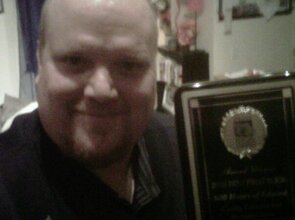 With the High Plains Book Award for best first book on October 8, 2010. With the High Plains Book Award for best first book on October 8, 2010.
The other thing I couldn't help thinking about Saturday night was a similar time, 12 years earlier to the day, when I was a much younger, much more ignorant man. In 2010, just months after my first novel was released, it won a High Plains Book Award. I might have been forgiven at that moment for thinking it would be forever thus: release a book, collect a prize. I might also have been gently prodded to see the bigger picture around me, because I was spectacularly screwing up some pretty basic parts of my life with neglect back in those days. I might have listened, adjusted, flown right.
Then again, I might not have done any of that. Being headstrong is its own affliction, cured by only one thing, if you're lucky enough to survive the medicine. My prescriptions were coming, about the writing life and about life, delivered in amazing highs and crushing lows, all the pain and pleasure I could ever want. Need another song? Try this one:
The joy is not the same without the pain.
My mistakes are here in Billings. My regrets. My glories. My aspirations. The erstwhile friendships I hope I can repair. Still others I wouldn't even attempt to, mirages that they are. What's behind me and what's ahead of me, all of it ready to be examined and experienced. Most of all, the one I love, who has her own definitions of home, who is striving to be of it and in it. Together, we will honor those answers and those places, be they physical or emotional or both. 8/14/2022 0 Comments Small. Appreciative.
Life has some funny cycles. As I write this, I'm just a handful of hours home from a couple of days in Great Falls, that visit coming on the heels of another Great Falls trip the previous week. Before that, I think the last time I was in Great Falls other than just passing through was ... 2010? 2011? A long time ago. I hope this means I'll be going back sooner rather than later. I like that town.
I was there to take part in a panel discussion of Montana authors, sponsored by the Great Falls Public Library as part of the Big River Ruckus festival. It was a blistering-hot morning, and my planet-sized melon sizzled. As is often the case for literary events, we didn't have a big crowd (I believe the applicable adjectives are "small" and "appreciative"), but we had good times in abundance. I joined poet Dave Caserio (a Billings denizen, like me) and writer Kristen Inbody, and we had a rollicking good time talking about writing in the West, ideas, how place figures into our writing, and much more.
Whenever I do an event, I'm put in mind of a line from a Pernice Brothers song: It doesn't matter if the crowd is thin / we sing to six the way we sing to ten ...
It's a funny line, of course, but the sentiment is dead-on. I've seen everything there is to see at readings, book signings, and the like: small gatherings, no gatherings, full houses, whatever. Whatever you get, you deliver as best you can to whoever was kind enough to show up. It's a charming business in that way. Every hand that's there to shake—or the only hand that's there to shake—is another chance to make a connection. And connections are everything. One person showed up? Great! Take that person out for dinner or a drink. The whole town showed up? Fantastic! Now you've got a party.
Love is love, and we love the stage ...
Before heading home Sunday, I drove out northwest of Great Falls to see the dairy farm my father grew up on. It was only the third time I've been there, and the second was just a drive-by, but I remembered the route just fine. I drove down the long driveway to where the house is, but nobody came out, and I wasn't about to go knocking on doors, so I took a quick look, then slipped out of there quietly.
Here's a nice shot from atop the bench, about a mile and a half from the farmhouse. Sorry for the telephone pole bisecting Square Butte.
When I talk about writing and where it comes from, as I did during our discussion Saturday, I'm apt to talk about how we are born with stories. We're not blank slates. Going to a place that was formative for my father (in mostly devastating ways, unfortunately) is a good demonstration of what I mean. It allows me to put eyes on his life, to process it, and to make sense of my own. Because of the way his life was shaped by his early experiences, he had a story to transfer to me, one that I would start to carry when I came into the world, along with the one I would live out in my own days. The same is true, of course, with my mother, and her parents, and his parents, and their parents before them, and on and on. The stories are inside us, already coded. We draw them out, interpret them, weave them with imagination and memory (in the case of fiction), give them purpose. It's a beautiful thing. Even when the underlying material is made up of mostly terrible things.
"Before you climb the mountain, first the foothills must appear."
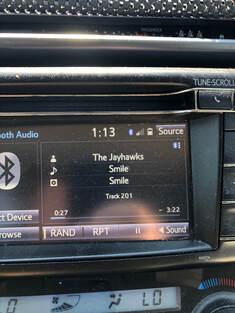
It was a long, hot, empty drive home for Fretless and me. He mostly slept. I mostly sang along with the random shuffle of iTunes, something I can get away with when I'm alone. (I certainly wouldn't subject any human to my singing voice.)
On the final stretch home, I received a particular delight when iTunes served up one of my favorite songs but also one that doesn't often swim to the top of the heap. I suppose most songs remind us of something, someone or some point in time. Certainly, this one does that for me. There's a tinge of melancholy, though, because it's a reminder of a friendship I miss. It's been many years since it went by the wayside, and I've come to embrace something I was told a long time ago when I was seeing a counselor while in the midst of divorce: Some friendships are like cab rides. They have a beginning and an end. Indeed, they do.
Anyway, it was nice to hear the song at that moment, with my head where it was (reeling in other memories), to recall good times with someone who was a good friend, and to put out a silent wish: I hope the good life has found you where you are.
It certainly has found me. Coming home—to Billings, to Elisa, to Spatz the cat—is the best arrival I've ever known. It makes the leaving worthwhile. 8/5/2022 0 Comments Great Falls, AdequatelyCome October 1st, it will be six years of marriage and about seven and a half years of togetherness for Elisa and me, and let me tell you: That's long enough that most of the stories have been told, mine to her and hers to me. We scooted away for an overnight trip to Great Falls this week. I had an event at Cassiopeia Books and an overdue acquaintance to make with owner Millie Whalen, and it was nice that Elisa and I could get away, just the two of us, for a little while. On the trip home, one of those untold stories spilled out ... Great Falls is where a lot of my family lore resides—my father, born in Conrad, grew up around there, and he and my mother married there long before I showed up—but it's not somewhere I often go. In nearly sixteen years of living in Montana, I've been only a handful of times, far less often than I've been to Missoula or Bozeman or Livingston or Helena or, heck, Miles City or Glendive. But in 1992, I almost moved there. That's the story that had gone untold. Now, when I say "almost," some qualifiers are in order. I wanted to move to Great Falls (or thought I did). The sports editor at the Great Falls Tribune at the time, a wonderful guy named George Geise, wanted me to move to Great Falls. The man who could make it happen, a senior-level editor at the paper I'd just as soon not name (but whose name I've never forgotten), made it clear I wouldn't be welcome there. The reason: I didn't have a college degree, and he didn't think I was qualified for the job without one. (I still don't have a sheepskin, but that's another story.) Now, let's be clear: This guy was flat-out wrong. I could handle the job I'd applied for (sports copy editor/page designer). I was handling it at a paper of similar size in Texarkana, Texas, and I would go on to handle it at progressively larger, more prestigious papers. I would, in time, become well-decorated and well-traveled. I would lead workshops in editing. I would direct a large sports department at a large West Coast newspaper. I would ... but I hadn't yet. Not in 1992. Then, I was a 22-year-old kid with some talent and, in fairness to the Executive Who Shall Not Be Named, some cockiness that was a bit out of proportion to the skills I'd honed to that point. And that imbalance, I think, would have been a perfectly valid reason for him to say, "Sorry, kid, not going to happen here." But that's not what he said. He fixated on the degree I didn't have. I didn't get the job. George Geise was disappointed. So was I. There was personal history to unearth in Great Falls, and I was already well in love with Montana, an affair that goes on and on. I thought I was missing out on something important. So, stuck for a while longer at a job in Texarkana I no longer wanted*, I made a resolution, one that has stuck for 30 years: No way was a guy like that going to be right about me. I made sure of it. *—In Texarkana, the single most appalling moment of my journalism career, now more than three decades old, happened. When Magic Johnson rejoined the NBA after his HIV-positive diagnosis, I played the story big on the front page of the sports section (as did just about every paper in America). The next day, a copy of the page was in my mailbox, the story circled in red pen, along with a note from an executive at the paper: "Magic Johnson is an immoral HIV carrier, and none of our readers care about him." I should have quit on the spot. It's to my eternal chagrin that I did not. I did, however, start looking for a new job immediately. 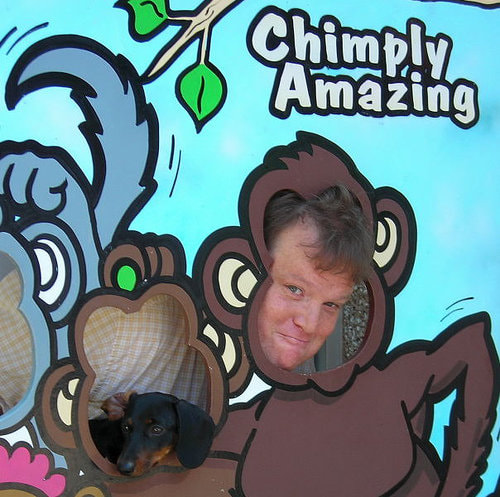 Me with Zula (RIP), clowning around in Great Falls in 2007. Me with Zula (RIP), clowning around in Great Falls in 2007. Now ... Did I miss out on something by not finding my way to Great Falls in 1992? Well, yes. Something. But not everything, and not the most important things. I didn't make it to Montana and stick here until 2006, when I was 36. Within a couple of years, I was writing books, something I'd have not even attempted 14 years earlier. By the time I got here, I'd already dug into the personal history that was faintly compelling me in my early 20s. I'd found my grandfather and closed an open question. I'd begun to talk to my dad about his life and his memories, so I could find ways to get closer to him. In subsequent years, I'd help, in whatever meager way I could, to put ghosts to rest. The headstone pictured below on my grandmother's grave (in Great Falls) went in just 15-plus years ago, well after her death, as my father began to forgive her for the ways she'd wronged him, a thawing of feelings that came about because he and I started digging in the hard soil of his past. On some level, I'm just guessing, but I doubt any of that would have happened the way it did if I'd shown up in Great Falls at the callow age of 22 and burned through that job the way I burned through others during that time in my life. Montana might have been over and done with before I could have gotten to know her. I might have missed the best years I've enjoyed here. The very best years of my life, as it turns out.
So far, anyway. |
About CraigCraig Lancaster is an author, an editor, a publication designer, a layabout, a largely frustrated Dallas Mavericks fan, an eater of breakfast, a dreamer of dreams, a husband, a brother, a son, an uncle. And most of all, a man who values a T-shirt. Archives
July 2024
By categoryAll 600 Hours Of Edward And It Will Be A Beautiful Life Awards Books Bookstores Community Connection Craft Craig Reads The Classics Dreaming Northward Education Edward Adrift Family Geography History Libraries Memory Montana NaNoWriMo Northward Dreams People Plays Poetry Public Policy Q&A Social Media Sports Stage Texas The Fallow Season Of Hugo Hunter The Summer Son This Is What I Want Time Travel Work Writers Writing Archives
July 2024
|

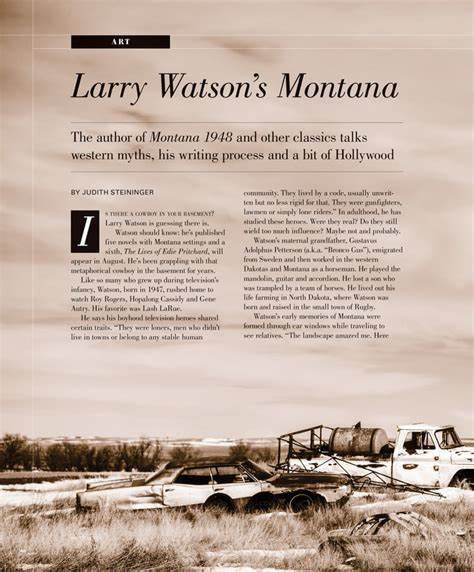
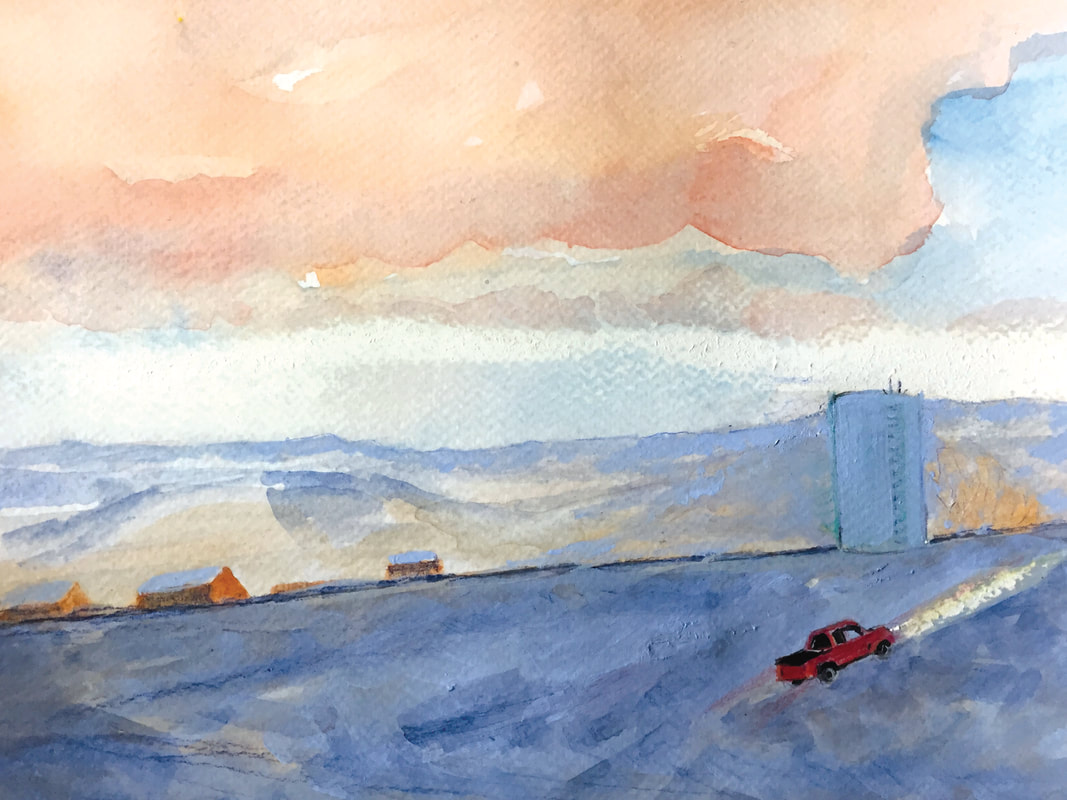



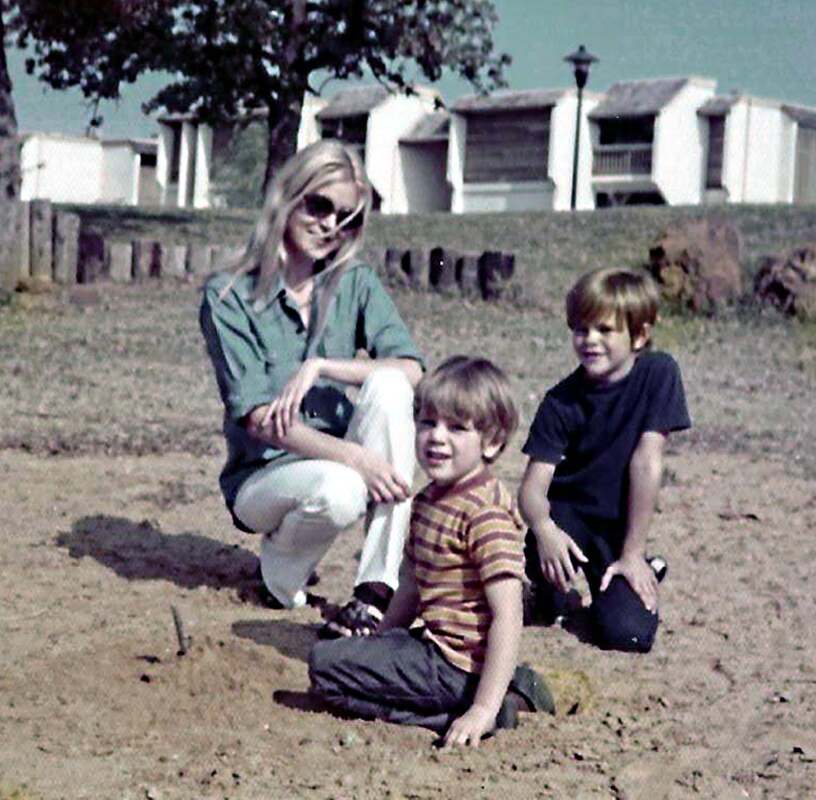
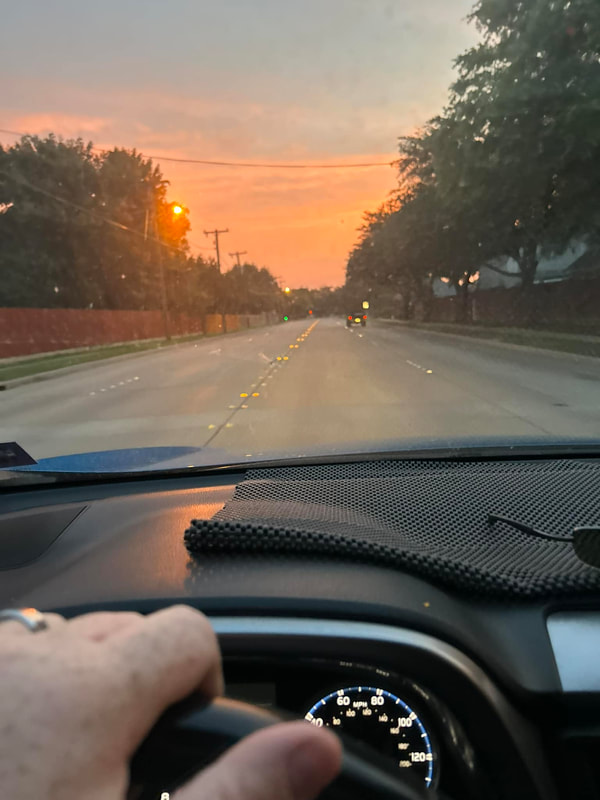
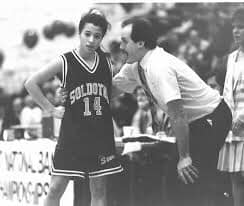
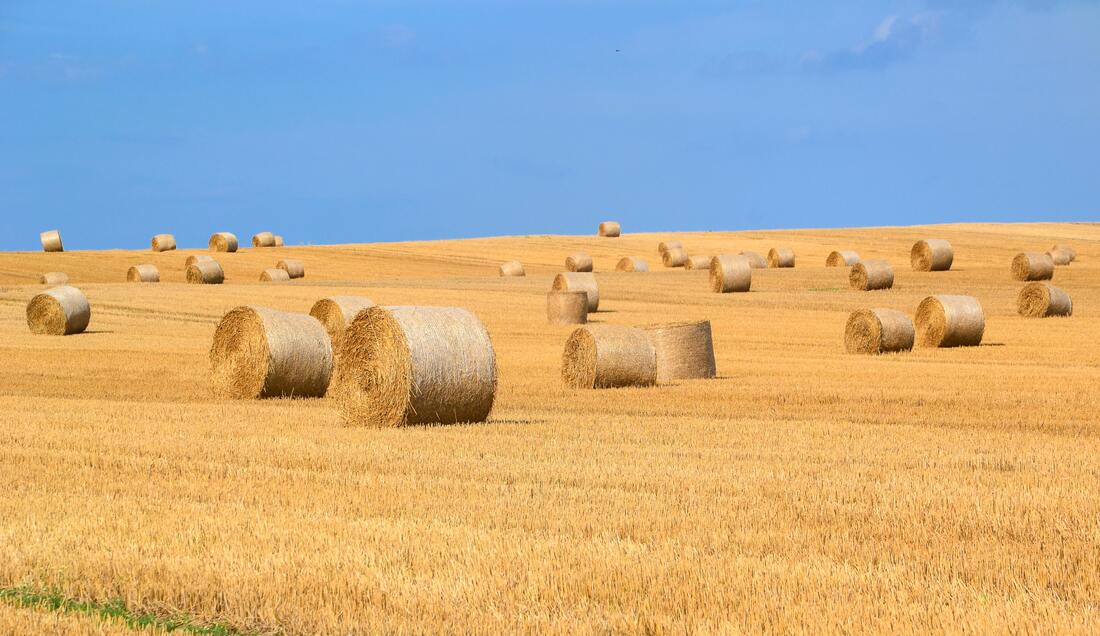
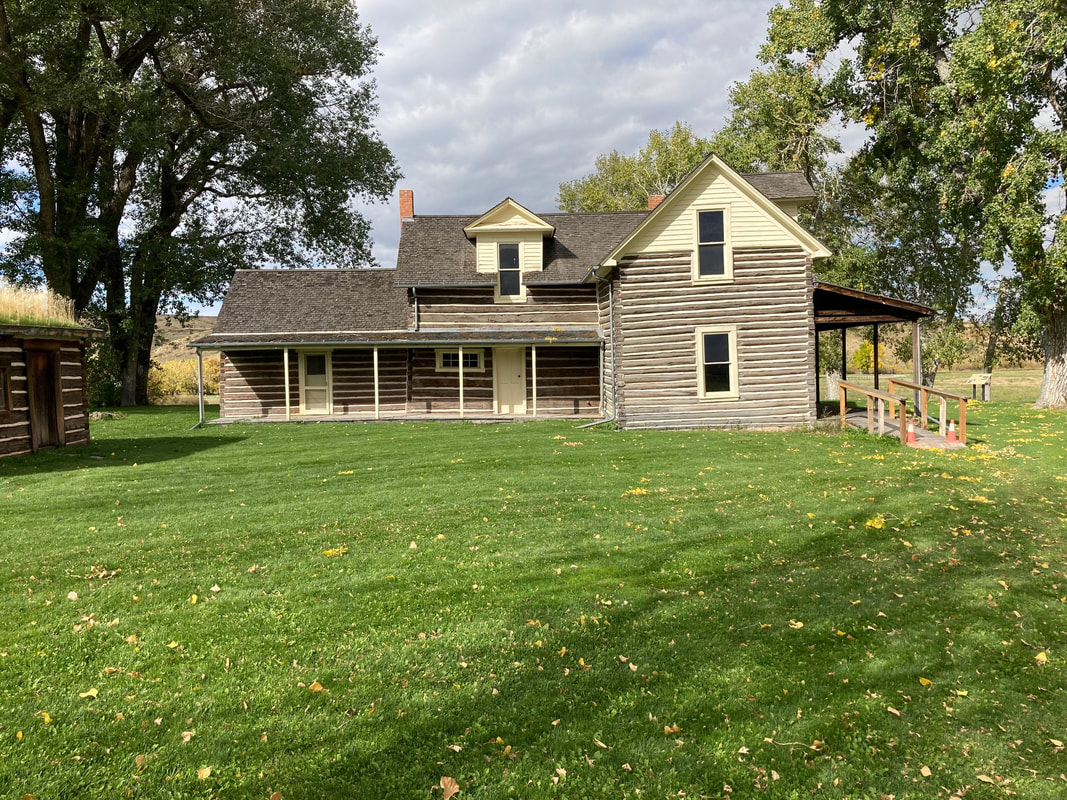
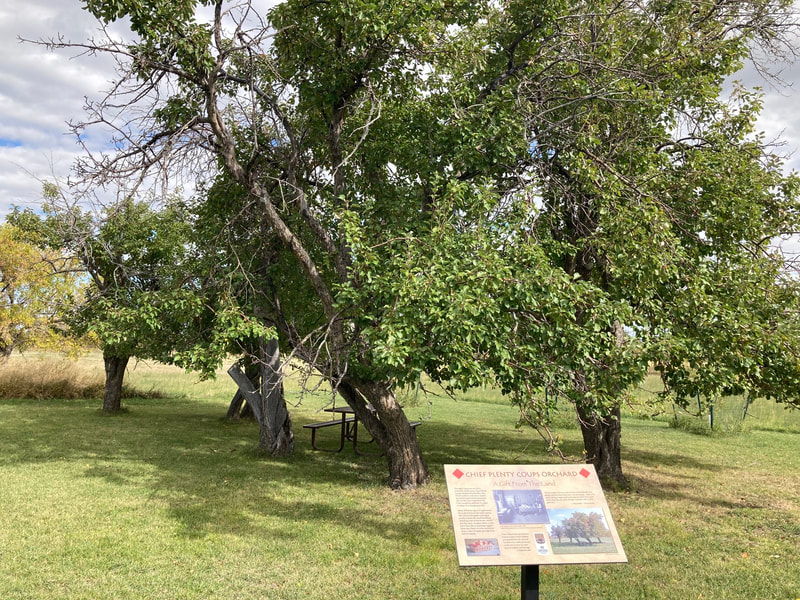
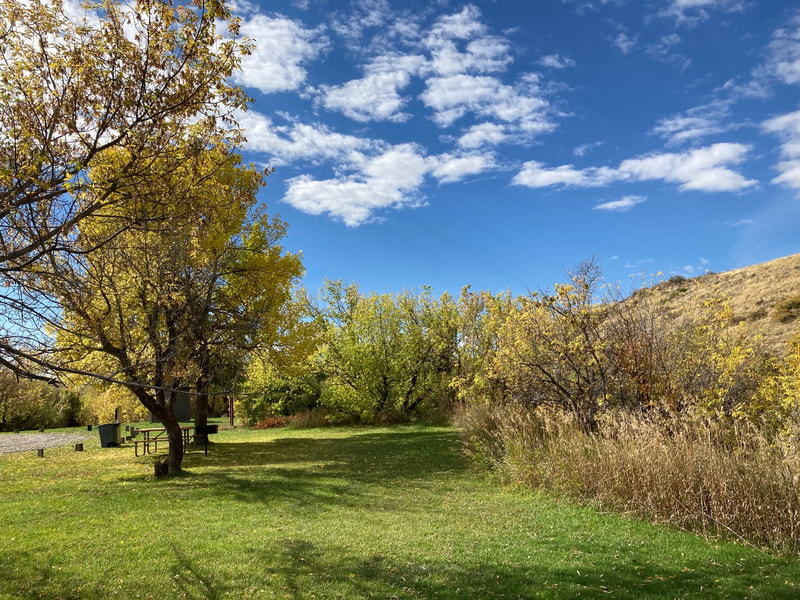
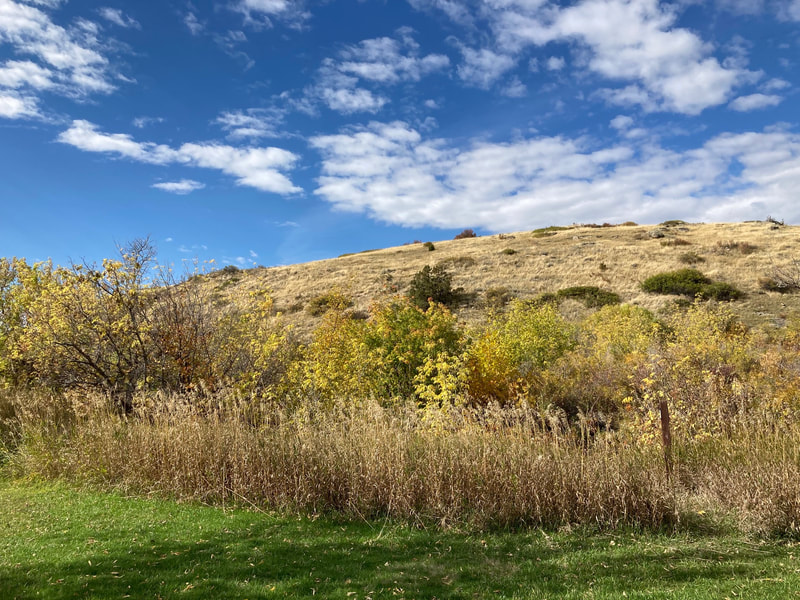
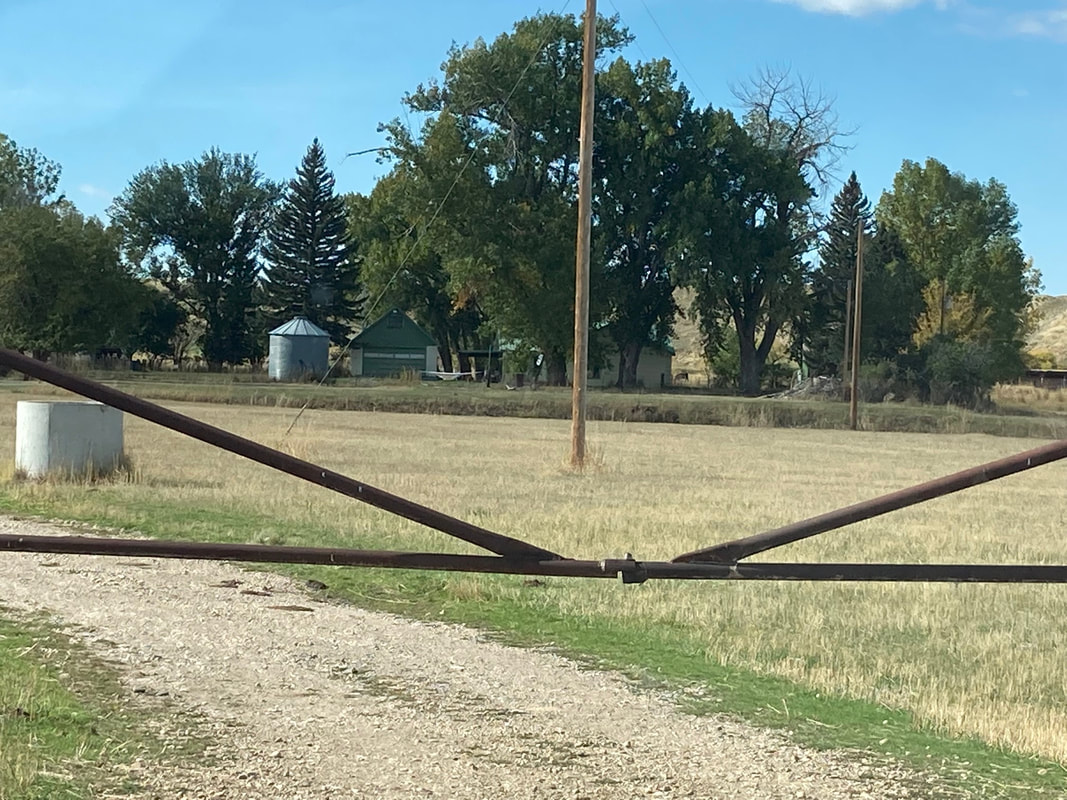
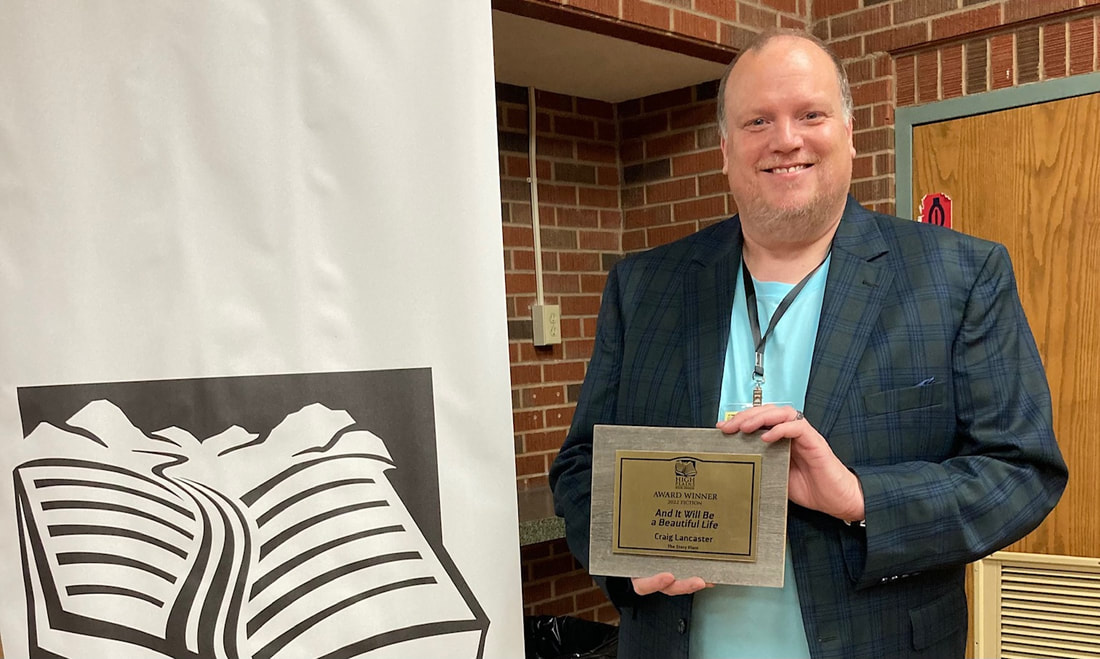
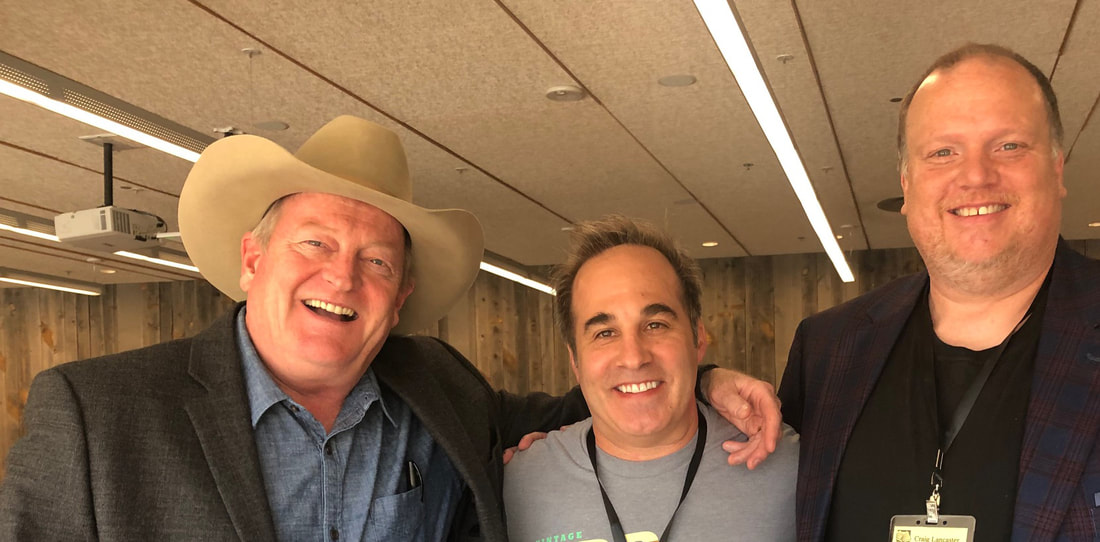
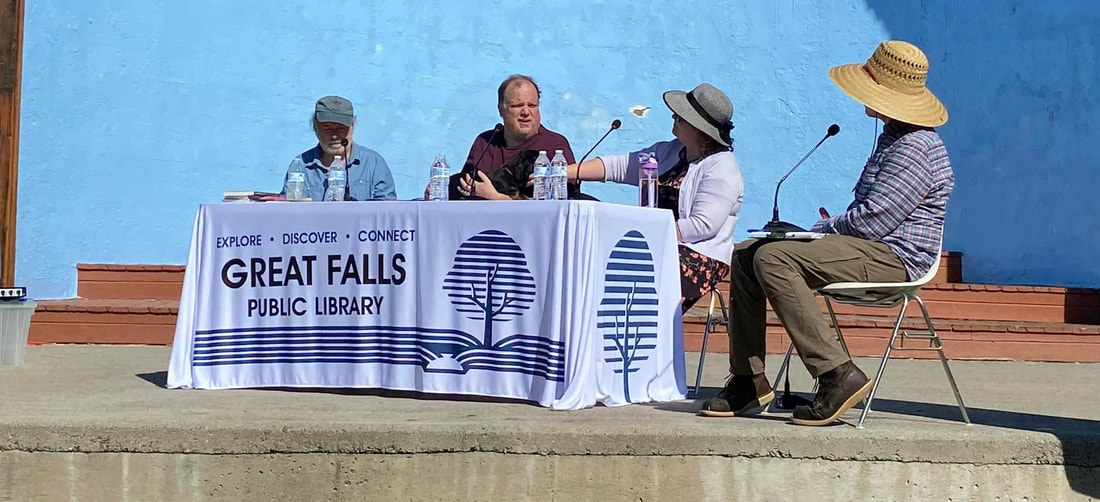
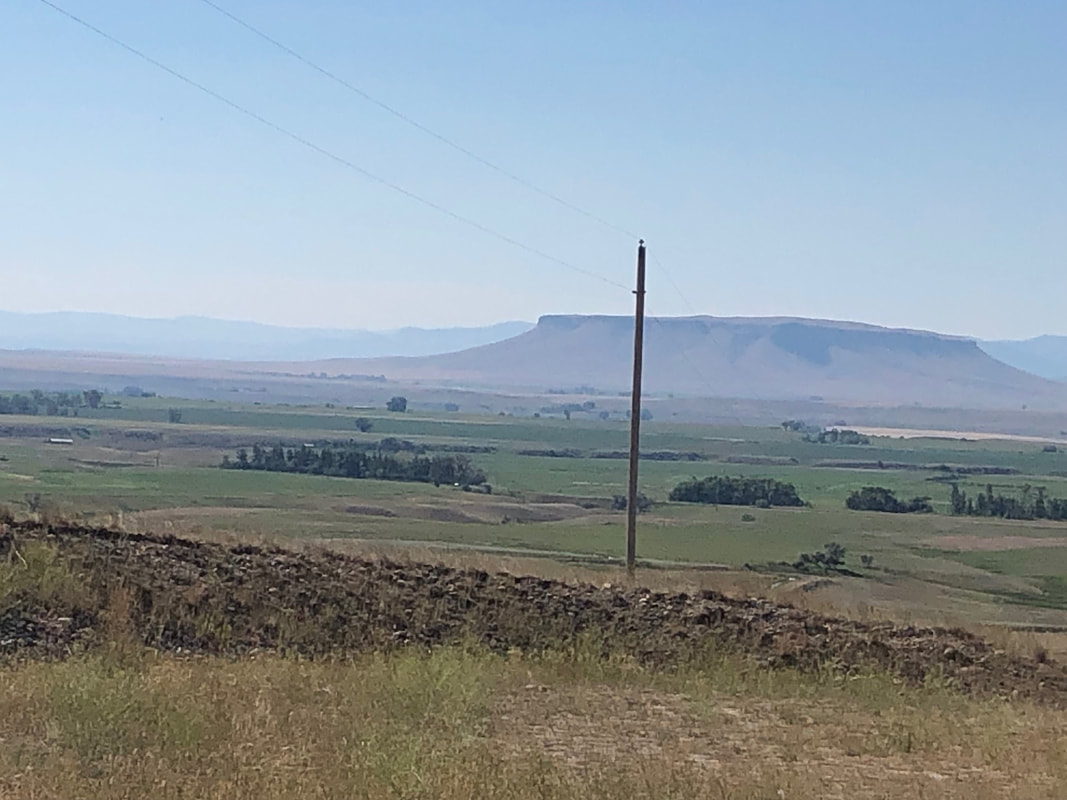
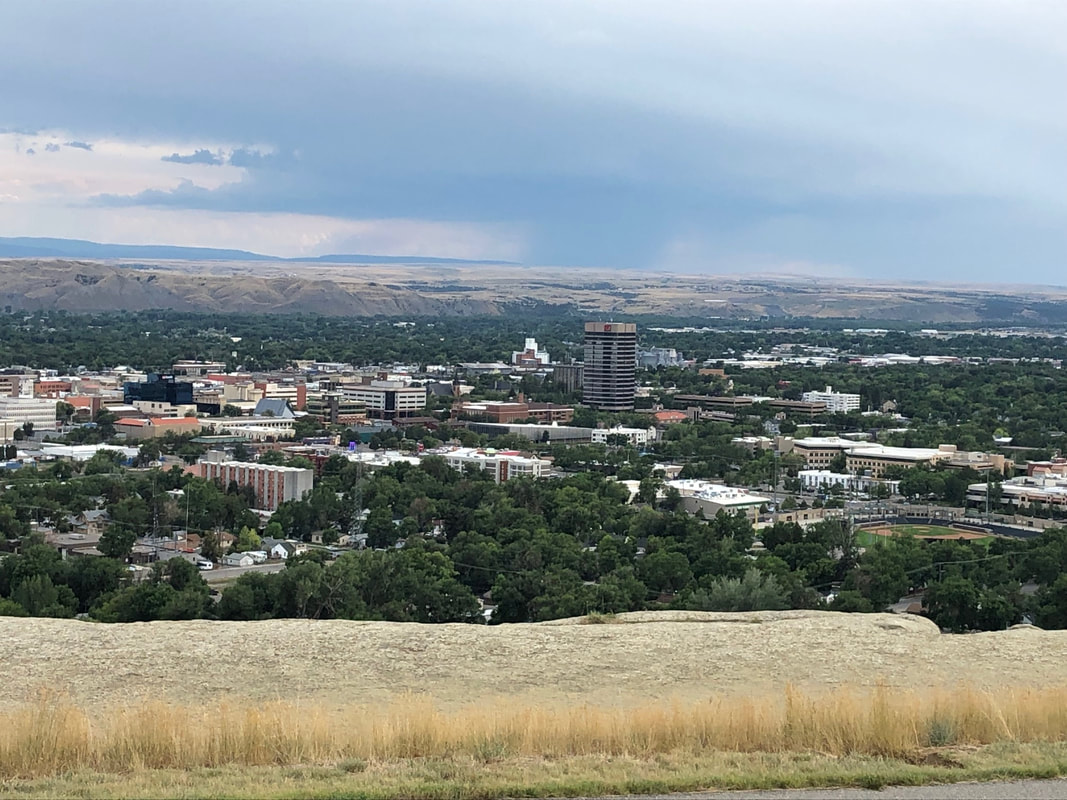
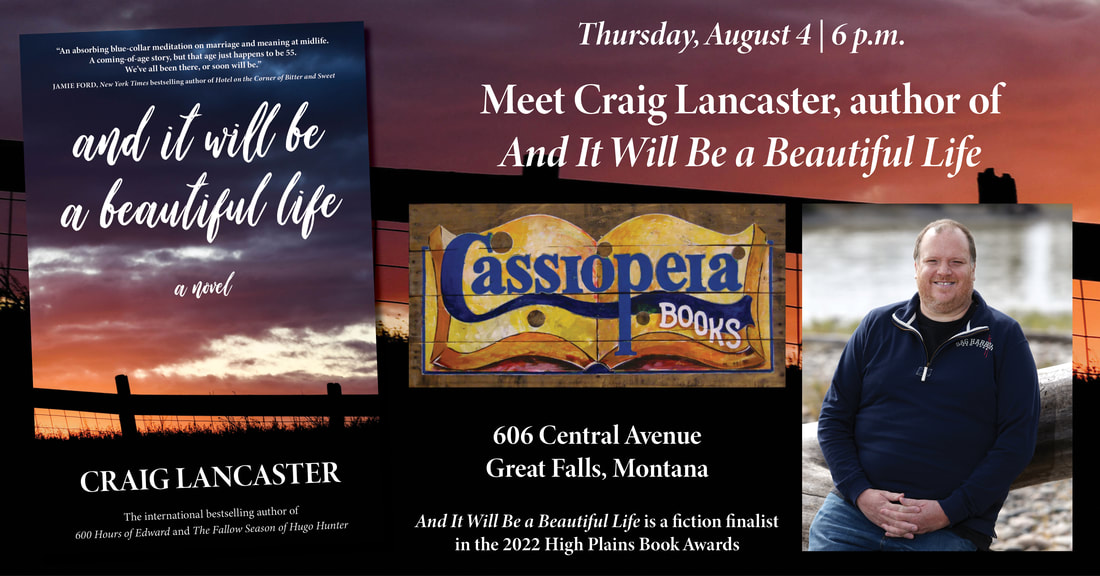
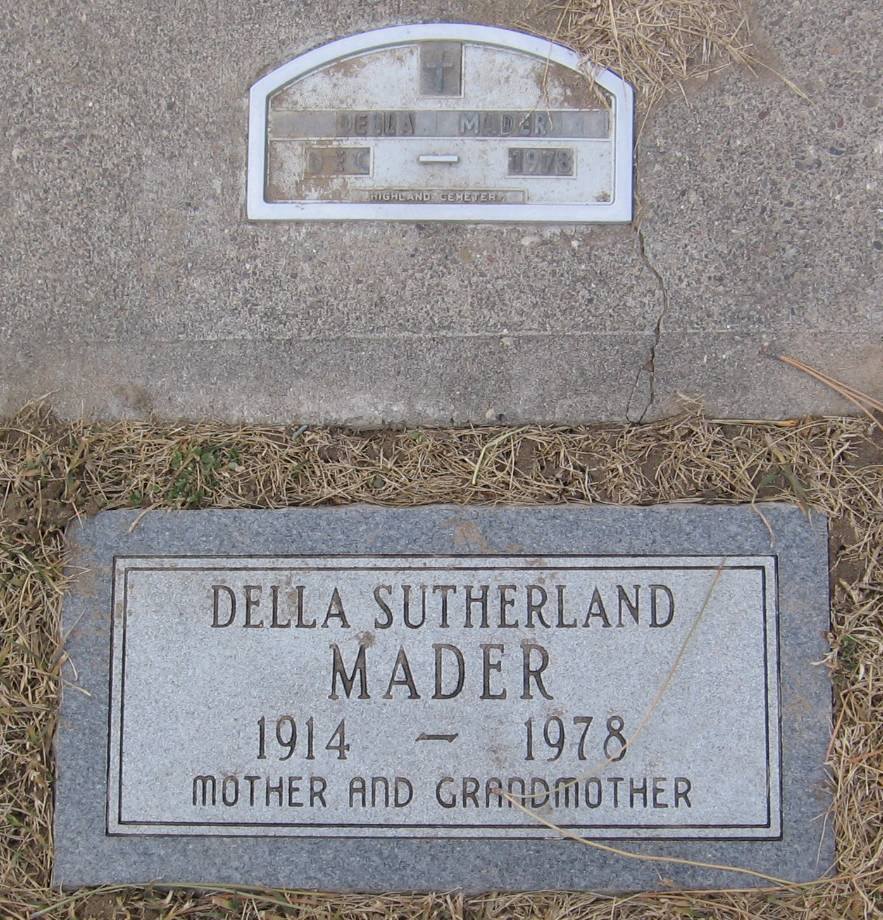
 RSS Feed
RSS Feed